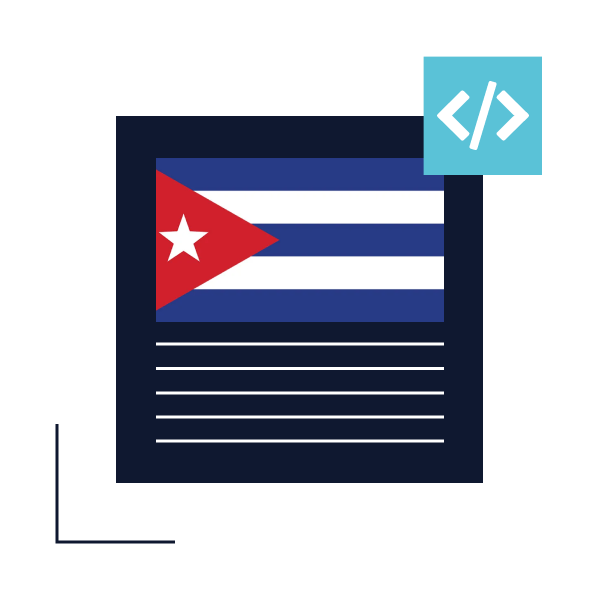Outsourcing has become an essential strategy for many businesses. In today's tight labor market and fast-paced rush to market, businesses that can focus primarily on their core business operations often have an advantage. Outsourcing secondary business functions such as payroll can give you that freedom.
What Is Payroll Outsourcing?
Payroll outsourcing is hiring a third-party provider to handle your payroll processes and responsibilities, including calculating and distributing employee salaries and wages, paying taxes, and providing benefits administration. The goal of payroll outsourcing is to free you from payroll-related tasks and responsibilities so you can focus your time and resources on your core business operations.
Payroll Outsourcing Benefits
There are many benefits to outsourcing payroll, including:
Time Savings
Outsourcing payroll eliminates the need to handle the administrative tasks involved in processing payroll, freeing up your time to focus on other aspects of your business.
Cost Savings
Hiring a payroll service provider can be more cost-effective than hiring in-house staff to handle payroll, especially for small businesses that may not have the resources to hire and train full-time employees. Outsourcing payroll can also reduce the costs associated with purchasing and maintaining payroll software and hardware.
Accuracy and Compliance
Payroll service providers use specialized software and have expertise in tax laws and regulations, ensuring that your payroll is processed accurately and complies with all tax laws. This reduces the risk of errors and penalties and ensures that your employees receive their correct pay and benefits. This is particularly important if you employ workers in other countries.
Reduced Liability
Payroll service providers assume responsibility for the accuracy and compliance of your payroll, reducing your liability for mistakes. They ensure that all required payroll tax deposits are made and tax forms are filed on time.
Expert Advice and Support
Payroll service providers can provide expert advice and support, helping you navigate complex payroll and tax issues. They can answer questions about payroll tax regulations, provide guidance on employee benefits, and resolve payroll-related disputes.
Flexibility
Many payroll service providers offer customizable services to meet the specific needs of your business, providing greater flexibility to your payroll processes. This includes the ability to adjust payroll processing schedules, change tax withholding rates, and add or remove employees as needed.
What Features Do Payroll Providers Usually Offer?
The exact features they offer will vary by provider, but many offer features such as:
Payroll Processing
This involves the automated calculation of employee salaries, deductions, and taxes. Payroll outsourcing providers typically use specialized software to perform these calculations, ensuring accuracy and consistency. The providers also take care of tax compliance, including the calculation and payment of federal, state, and local taxes.
Tax Compliance
Ensuring compliance with local, state, and federal tax laws is crucial for businesses. Payroll outsourcing providers stay up to date with the latest tax laws and regulations and ensure that the company’s payroll taxes are properly calculated and filed on time. This can help reduce the risk of fines and penalties for noncompliance.
Direct Deposit
Direct deposit allows for the automated transfer of employee salaries to their bank accounts, eliminating the need for paper checks. It's a convenient option for both employees and employers, as it reduces the risk of lost or stolen checks and saves time and money on printing and mailing costs.
Payroll Reports
Payroll outsourcing providers can generate various payroll reports, such as pay stubs, W-2 forms, and year-end tax forms. These reports are important for employees to keep track of their income and tax information and for employers to maintain accurate records for tax purposes.
Time and Attendance Tracking
Time and attendance tracking systems allow employers to accurately track employee hours worked, including overtime and paid time off. By integrating with payroll systems, payroll outsourcing providers can ensure that employee hours are accurately reflected in their paychecks.
Benefits Administration
Payroll outsourcing providers can also manage employee benefits, such as health insurance, 401(k) plans, and paid time off. This can help simplify the benefits enrollment process for employees and ensure that benefit deductions are accurately reflected in their paychecks.
Compliance Support
Compliance with labor laws and regulations, such as minimum wage laws and overtime rules, is important for businesses. Payroll outsourcing providers can assist with compliance, ensuring that the company’s payroll practices are in line with these laws and regulations.
Employee Self-Service Portals
Employee self-service portals allow employees to access their payroll information, request time off, and view pay stubs. This can save time and improve efficiency, as employees can access their information online instead of contacting HR or payroll staff.
Mobile Access
Payroll outsourcing providers often offer mobile access to payroll information and services. Employees can access their information and request time off using a mobile app, making it easier for them to manage their payroll information on the go.
Customer Support
Dedicated customer support is an important feature of payroll outsourcing providers. This can help ensure you receive prompt and effective support for any questions or concerns related to payroll processing and compliance.
How Does Payroll Outsourcing Work?
The outsourcing provider takes on the responsibility of calculating and distributing employee salaries, withholding taxes and benefits, and ensuring compliance with labor laws. You'll agree to the terms and sign a contract with the payroll outsourcing company, including costs and responsibilities. The outsourcing provider then ensures they have the necessary registrations and licenses to manage payroll.
To process payroll, the outsourcing provider will need access to all necessary employee information. The provider will then process your payroll regularly, usually biweekly, and ensure your employees are paid as agreed. You'll get a copy of all reports during each payroll period. They'll submit payments and documentation to the tax authorities and other third parties as legally required.
What to Consider When Outsourcing Payroll
When you're deciding whether to handle in house payroll vs outsourcing it — or trying to decide between payroll outsourcing services — here are some factors you should consider:
Compliance
The payroll outsourcing company should have a solid understanding of payroll tax laws and regulations and be up to date on any changes. They should also have a proven track record of accurate and timely payroll tax filing.
Experience
Look for a payroll outsourcing company with experience serving businesses in your industry and of similar size. You want to make sure they're familiar with the unique payroll needs and requirements of your business.
Services
Consider what services the payroll outsourcing company offers and whether they meet your business's needs. For example, if you have remote employees or those who work in multiple states, you may need a company that specializes in handling multistate payroll taxes.
Security
The payroll outsourcing company should have robust security measures in place, such as secure data storage, data encryption, and secure communication methods. This is important to protect sensitive employee and company information from potential breaches or theft.
Cost
Compare the fees charged by different payroll outsourcing companies and make sure that the cost is reasonable for the services provided. You may also want to consider the cost of any additional services you may need as your business scales.
Customer Support
Good customer support is crucial when it comes to payroll. Choose a payroll outsourcing company that offers reliable and responsive support, as you may need assistance with payroll-related issues from time to time.
Reputation
Research the payroll outsourcing company's reputation by reading reviews from current and past clients. Don't hesitate to ask for referrals to get a good idea about current customer satisfaction and the quality of its services.
Integration
If you have existing HR and accounting systems in place, it's important to choose a payroll outsourcing company that can integrate with these systems. This will help to streamline your payroll processes and ensure that all relevant information is up-to-date and accurate.
How Much Does Payroll Outsourcing Cost?
The cost of payroll outsourcing can vary widely depending on the size of the company and the specific services offered. Some factors that can affect the cost include the number of employees, the complexity of the payroll system, and the level of customer support required. On average, small businesses can expect to pay anywhere from $500 to $3,000 per year for payroll outsourcing, while larger companies may pay upwards of $10,000 or more per year. It's best to get quotes from several providers to compare costs and services.
Outsourcing Payroll With Revelo
At Revelo, our end-to-end tech talent platform handles all of the hassle associated with sourcing, vetting, hiring, and managing your remote workforce. You pick your ideal developer and focus on growing your business. We take care of everything else — including payroll and benefits administration. Reach out today to find out how we can help you succeed.




